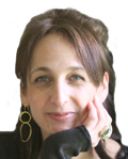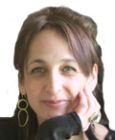Fear
Good Poker Players Make Good SAT-Takers (And Other Quotable Moments)
It's quite astonishing, really, this fear and trembling about the SAT.
Posted January 4, 2012

I've spent the last few weeks gorging on books I'd set aside to read over the course of the past year.
One such book was None of the Above: Behind the Myth of Scholastic Aptitude by David Owen, which was published in 1985 -- and while I can't vouch for it's accuracy all these years later (the SAT has morphed a few times since the book was published), I can attest to the fact that it has fully retained it's entertainment value, and, it's still loaded with valid SAT information.
Before I highlight some of my favorite quotes from the book, I want to qualify:
1) While much of this book falls in line with my personal SAT experience, the author's indicting tone diverges from my own agenda. Personally, I haven't taken the time to decide where I stand on the SAT, as it was never my priority to judge the test. My intention was to connect with my son and have a little bit of fun. (Mission accomplished, btw.)
2) My other intention was to share what we learned along the way, and hopefully spare others some test prep wheel-spinning. More to come on that front over the next few weeks.
Ok, here goes, a few of my favorite quotes (many abbreviated, which hopefully didn't take them out of context):
This first quote is from the Introduction. I've said at least a zillion times, to all those who tell me how easy, or unfair the SAT is, "Come on in! Get your feet wet -- then let's talk!" I'm not at all surprised by how reluctant even the most accomplished adults are, to re-take this test:
"Several years ago, Esquire asked me to call up a few dozen prominent media types and ask them to submit, all in good fun, to a special administration of the SAT. The idea was to find out whether New York's cultural lions were really everything they were cracked up to be ... The project was a spectacular failure. Of all the people I talked to, only one -- P.J. O'Rourke, then the editor of the National Lampoon -- agreed to take the test. Everyone else was horrified. ...David Halberstam...George Plimpton...Frances Fitzgerald...Jules Feiffer ... Susan Brownmiller...John Simon...Midge Decter...Wilfred Sheed...Gail Sheehy...Irving Kristol...
It's quite astonishing, really, this fear and trembling about the SAT. The people I called were scholars and best-selling authors and winners of the Pulitzer Prizes. Their careers had been enviably successful by almost anyone's definition. And yet, they were afraid to take a short multiple-choice test whose content doesn't stray far beyond a high-school-level vocabulary and simple arithmetic."
One of the many amusing snippets in the book is about ETS headquarters (which incidentally, is a stone's throw from where I grew up):
"The not-for-profit are different from you and me. Tennis courts, a simming pool, a baseball diamond, a croquet lawn, a private hotel, 400 acres of woods and rolling hills, cavorting deer, a resident flock of Canada geese -- I'm loving every minute here at the Educational Testing Service, the great untaxed, unregulated, unblinking eye of the American meritocracy."
ETS sells the SAT scores (said boldly, on purpose). I feel like that point bears repeating, loudly, as most parents I know don't realize that SAT scores can result in $$$ opportunities. Fine if you want to blow it off because you don't believe in "standardized testing" (trust me, I've had my own come to jesus moments about what it means to be good -- or not -- at this test) -- but just be aware that you're potentially leaving money on the table by not buying in. I don't know about you, but I'm not in any position to be thumbing my nose at opportunities to help pay for college, so if that means I've got to buy into this SAT thing, so be it. I'm in.
I've seen school administrators (including those in my own town) publicly condemn the SAT without mentioning to families that rejecting the test means forfeiting financial opportunities. Just so you know.....
"ETS collects information about participants in it's Admissions Testing Program and sells it to colleges, foundations, military recruiters, and other 'institutions, consortia, and scholarship agencies."
The week before my final SAT, I had this epiphany that I was going about the Critical Reading section all wrong. I was focused on the author of the passages, while I should have been focusing on the author of the questions and answers. It seems so obvious now.
"In contrast to messy essay tests, ETS would have you believe, it's multiple-choice questions and answers are scientifically designed and entirely above suspicion. But the truth is that these tests are written by ordinary people who quite possibly didn't do as well on their SATs as you did on yours."....
...."ETS uses numbers to build its tests, but it needs people to write the items. Understanding how these people think is one of the keys to both doing well on their tests and to penetrating the mystique in which they cloak their work. Despite ETS's claims of "science" and "objectivity," the company's tests are written by subjective human beings who tend to think in certain predictable ways."
I wrote a few blog posts about feeling purposely messed with by the SAT test writers, and people came down hard on me for saying that. But, I maintain my position (and this book concurs): Watch out! They are messing with you.
"Another way to make students miss questions whose subject matter they understand is to write misleading questions. Test-makers don't always do this intentionally, but they always do it, in part because it's very hard not to."
I won't lie, these quotes did make me feel better:
"Bright students sometimes have trouble on ETS tests, because they tend to see possibilities that the question writers missed."...
..."Advanced students often have trouble on the SAT because they aren't adept at recognizing the tricks ETS uses to make familiar problems look unfamiliar.... The only aptitude they need to increase in order to score higher is their aptitude for detecting the ETS mentality."
Someone told me at the very end of my project that if you're down to two answers in the Critical Reading section, and don't have time to find the answer in the passage (often the case with me), pick the most innocuous choice. This quote from the book clarifies the reasoning:
"In ETS test reviews, the emphasis is not always on whether keyed answers are good or absolutely correct but on whether they can be defended in the event that someone later complains."
To this line, I'd say, yup. Probably. Sounds right to me:
"Good poker players make good SAT-takers; they know how to figure out the odds and take calculated risks."
The book contains a chapter about bad test prep that was so in line with my experience, I could have written it myself. I call them, "The Impostors."
"Ineffective coaching courses tend to be so not because they are too short but because their curricula are cluttered up with "educational" materials that have little or nothing to do with the "abilities" measured by ETS."
"Most commercial coaching materials have very little to do with either education or the SAT. Many are written by people who clearly know very little about the tests they purport to explain. Some probably even lower the scores of the students who use them."
I'd highly recommend this book for all would-be test takers, parents, and tutors. It's an enlightening, informative, and a lot of fun to read.
llustrations by Jennifer Orkin Lewis




